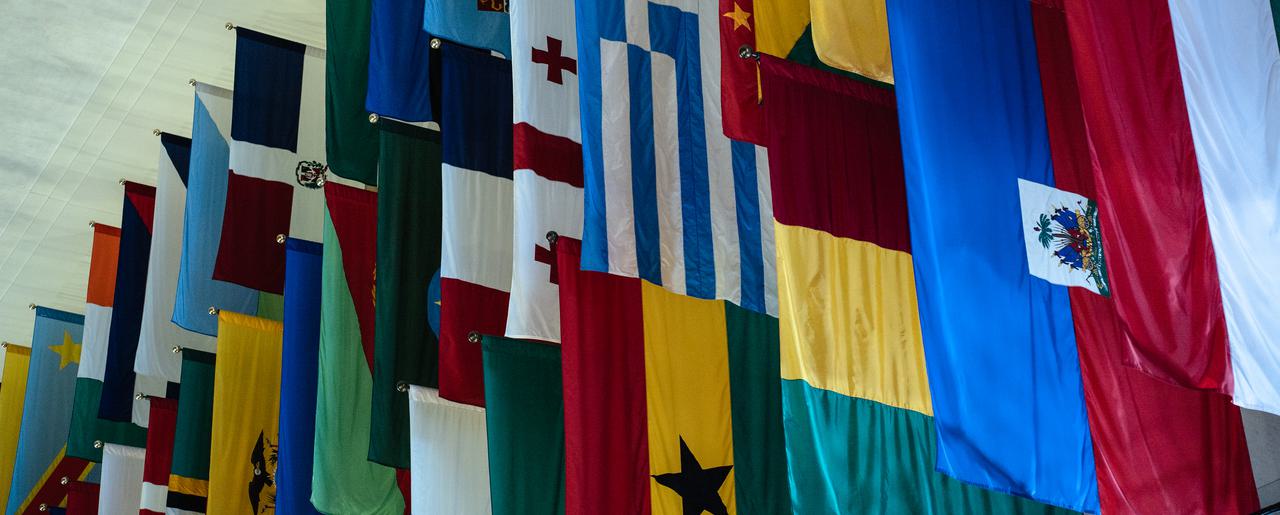DPI Page: Foreign Nationals on United States’ Death Rows
Some of those on death row in the U.S. are citizens of other countries, raising human rights issues and issues of U.S. compliance with international treaties.
Cornell Law School: International Death Penalty Database
Maintained by the Cornell Center on the Death Penalty Worldwide (Cornell Law School)
Overview
More than 70% of the world’s countries have abolished capital punishment in law or practice. However, the death penalty continues to exist in many parts of the world, especially in countries with large populations and those with authoritarian rule. In recent decades, there has been a clear trend away from capital punishment, as many countries have either abolished the death penalty or discontinued its use. The U.S. remains an outlier among its close allies and other democracies in its continued application of the death penalty.
While international law does not prohibit the death penalty, most countries consider it a violation of human rights. The use of the death penalty worldwide is relevant in evaluating U.S. standards of decency and what should be considered cruel and unusual punishment under the Eighth Amendment. Some Justices of the Supreme Court have referred to international law as further affirmation of their own conclusions about the death penalty, particularly as it may apply to specific classes of defendants such as juvenile offenders.
At Issue
There are a number of disagreements that may arise between countries that impose the death penalty and those that do not. Countries without the death penalty are particularly concerned when one of their citizens faces execution in the U.S. Some countries refuse to extradite individuals to the U.S., or even to provide incriminating evidence, if the defendant could face the death penalty. In addition, many countries and international bodies consider the death penalty to be a human rights issue and various U.S. death-penalty practices have been criticized as violating U.S. treaty obligations and international human rights law. The concern for human rights around the world has always been important in U.S. diplomacy, but the U.S. is often challenged because of its use of the death penalty and the protection that affords to other countries that use it in particularly abusive ways.
What DPI Offers
International research on the use of the death penalty owes particular gratitude to Amnesty International, which has regularly monitored and reported on capital punishment around the world. DPI passes this information on with attribution through its website and makes an effort to highlight those areas where international norms and practices reflect on the death penalty in the U.S. DPI has issued one report focusing on this topic and regularly highlights relevant research and developments that occur around the world.
News & Developments
News
Jan 09, 2025
Worldwide Monthly Roundup: Abolition in Zimbabwe, Global Moratorium Gains Support; Known Executions Rise in Limited Number of Countries

Progress towards global abolition of the death penalty continues with Zimbabwe’s end-2024 decision to nearly eliminate the practice, only preserving the right to impose death when the country is under a declared public emergency. Zimbabwe’s last execution…
Read MoreNews
Dec 04, 2024
Worldwide Monthly Roundup: China, Iran, Saudi Arabia, Singapore, and Vietnam
According to numbers reported by Agence France-Presse, Saudi Arabia executed 303 people in 2024 — the nation’s highest ever total, and currently the second highest known execution total worldwide for this year. November alone saw the execution of more than 100 foreign nationals, nearly triple the number in each of the past two years. UN human rights experts expressed concern following the December 3 execution of three Egyptian nationals, calling on the government to halt the pending…
Read MoreNews
Nov 06, 2024
Worldwide Wednesday International Roundup: Iran, Pakistan, Saudi Arabia, and Vietnam
According to Norway-based Iran Human Rights (IHRNGO), October saw the highest monthly execution total in Iran since 2007, when the organization began documenting executions. There were at least 166 executions last month, bringing the yearly total to 651 executions over the past 10 months. Of the October executions identified by IHRNGO, only 12%, or 20 executions, were reported by official sources. Eleven Baluch and nine Kurdish people were among those executed. The increase in number of…
Read MoreNews
Oct 11, 2024
French and German Embassies Host a Discussion on Innocence and the Death Penalty
On October 11, 2024 the Embassies of France and Germany hosted a discussion on the question of innocence and the death penalty at the residence of the French Ambassador in Washington, D.C. Panelists included Herman Lindsey, a death row exoneree and Executive Director of Witness to Innocence; Vanessa Potkin, Director of Special Litigation at the Innocence Project; and Emmjolee Mendoza Waters, Director of the Death Penalty Abolition Program at Catholic Mobilizing Network. The approximately 75…
Read MoreNews
Oct 02, 2024
Worldwide Wednesday International Roundup: Democratic Republic of the Congo, Iran, Iraq, Saudi Arabia, Taiwan, United States, and Vietnam
On September 13, 2024, 37 people, including three Americans, who were “charged with terrorism, murder, criminal association and illegal possession of weapons, among other charges” for their participation in an attempted coup in May were convicted and sentenced to death by a military court. Richard Bondo, lawyer for the three Americans, filed an appeal on Tuesday, September 17, 2024. Mr. Bondo argues that since the DRC is a member of the Treaty of Rome, the reinstatement of the death penalty…
Read More
